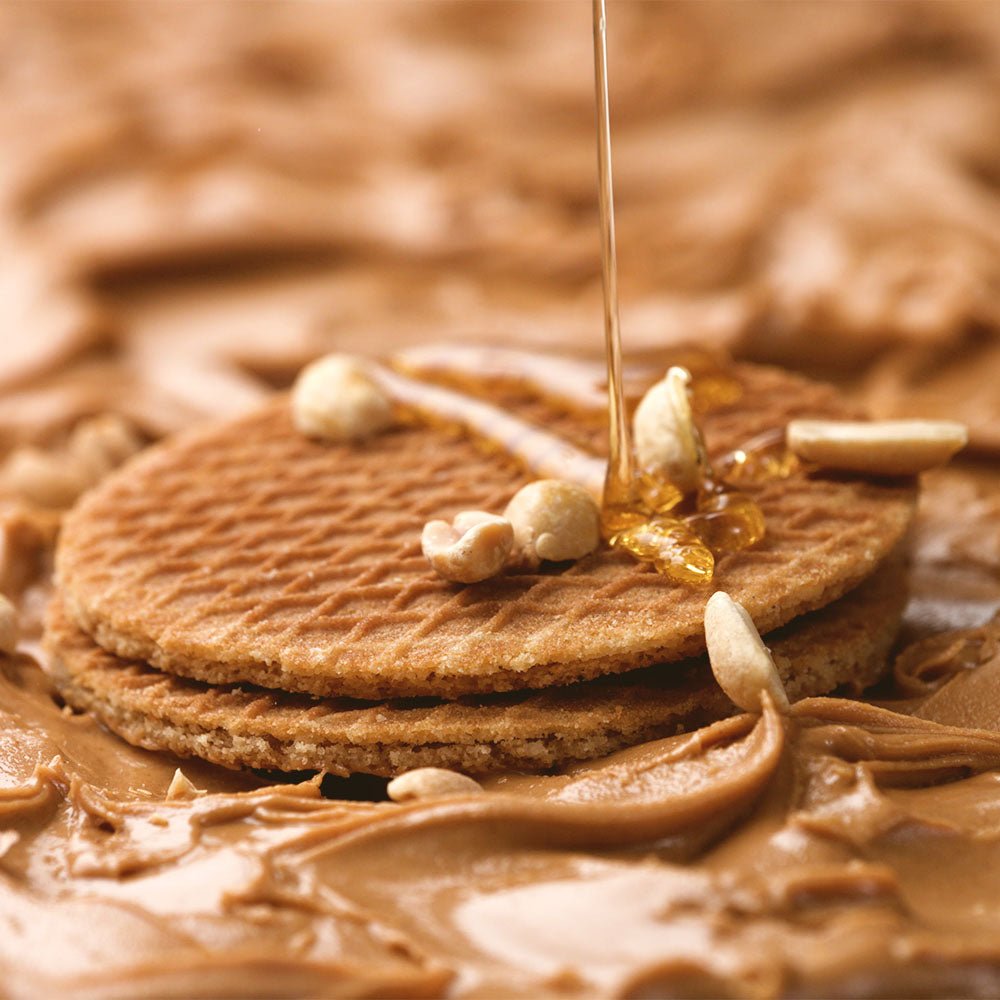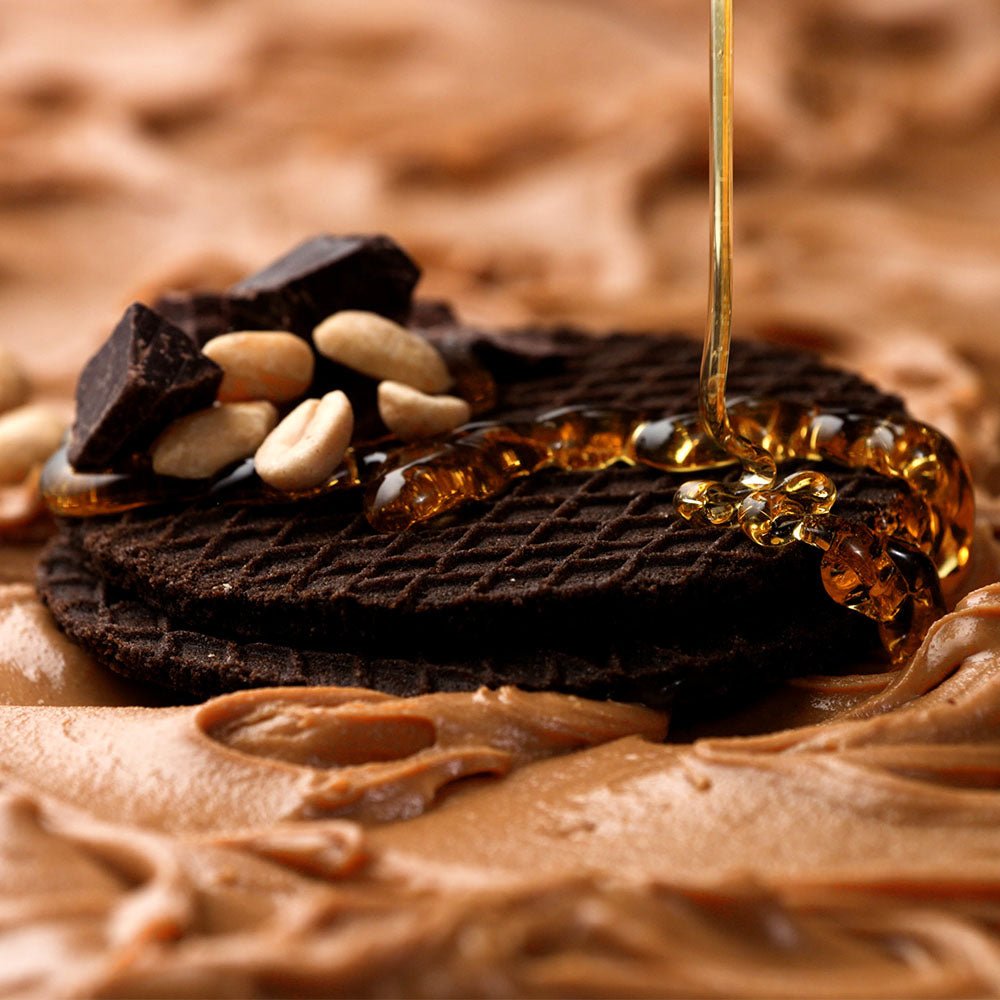The Why Behind Caffeine and Exercise
Sports dietitian Kelly Jones dives into the science behind caffeine and its positive influence on athletic performance:  Athletes and active individuals often include caffeine as a part of their performance nutrition routine, and for good reason. Caffeine is a well-researched performance enhancer, known best for assistance training harder and for longer. It acts by stimulating the central nervous system and dilates blood vessels, among other mechanisms. While a common recommendation is to consume at least 2 mg of caffeine per kg of body weight roughly one hour before training, there are other times when intake may be beneficial. It's also important to understand risks of overconsumption, which can include gastrointestinal upset, overstimulation and shaking, as well as disrupted circadian rhythm. So, when should you take in caffeine to maximize performance for your specific type of training or competition? How much is appropriate and in what form? The answer varies based on genetic and physiological differences as well as food intake, but here are some guidelines to help you better understand the benefits of caffeine for physical performance as well as guidance for usage to help you perform your best.
Athletes and active individuals often include caffeine as a part of their performance nutrition routine, and for good reason. Caffeine is a well-researched performance enhancer, known best for assistance training harder and for longer. It acts by stimulating the central nervous system and dilates blood vessels, among other mechanisms. While a common recommendation is to consume at least 2 mg of caffeine per kg of body weight roughly one hour before training, there are other times when intake may be beneficial. It's also important to understand risks of overconsumption, which can include gastrointestinal upset, overstimulation and shaking, as well as disrupted circadian rhythm. So, when should you take in caffeine to maximize performance for your specific type of training or competition? How much is appropriate and in what form? The answer varies based on genetic and physiological differences as well as food intake, but here are some guidelines to help you better understand the benefits of caffeine for physical performance as well as guidance for usage to help you perform your best.
Benefits of Caffeine for Performance
With the most widely recognized benefit being improved physical performance for endurance activity, caffeine research also shows an association with reduced pain and therefore reductions in fatigue and improved coordination and cognitive performance during high intensity exercise. Recent research shows benefits to resistance and strength exercise, and it is possible that post-exercise caffeine intake may improve glycogen replenishment (carbohydrate storage in the muscles).
Caffeine for Improved Endurance Performance
A wide variety of studies including varied types of endurance activities confirm the benefits of caffeine for both males and females. Performance enhancing benefits for both muscular endurance and aerobic endurance (related to cardiorespiratory functions) have been found. It is generally acknowledged that caffeine can enhance aerobic performance for activities lasting anywhere from 20 to 250 minutes. While many endurance studies are conducted with cycling and running as the method of training, a systematic review showed that when caffeine is consumed in doses between 2 and 6 mg/kg of body weight before exercise, there is improved endurance performance in a variety of sports including running, cycling, swimming, rowing, and cross-country skiing, among others.  While ingestion of caffeine before exercise is helpful for both short and long endurance activities, it is important to recognize the importance of carbohydrate intake during exercise lasting longer than an hour to maintain intensity and increase time to exhaustion. Taking in caffeine during exercise has also been shown to improve time trials lasting close to two hours. As you might expect, a review found the effects of caffeine to be more pronounced when paired with carbohydrate. In one study male cyclists saw a 27% distance time trial improvement when ingesting a carbohydrate rich snack bar with caffeine versus a placebo.
Caffeine for High Intensity Activities
An evaluation of 12 tests showed faster exercise speed in activities lasting 8 minutes or less when caffeine was ingested prior to exercise. While that review included mostly male participants, another study evaluated 5 km cycling trials lasting 7-9 minutes with both men and women. Ingesting a caffeine dose of 3 mg/kg of body weight significantly improved speed, with similar improvements noted for both genders. These studies suggest caffeine can improve performance for those engaging in longer bursts during high intensity intermittent sports such as soccer and tennis, as well as for circuit training activities that include rest periods. One study that simulated soccer performance found that caffeine added to a carbohydrate and electrolyte solution improved sprint times, leg power, and even positive emotions.
Caffeine and Pain Reduction
Caffeine can improve endurance performance by enhancing metabolic systems and dilating blood vessels to more effectively deliver oxygen and nutrients to muscle cells, it also has the ability to reduce feelings of pain. This effect may both reduce perceived exertion and improve quality of life and ability to be active in those who experience pain after exercises they are not adapted to. Caffeine has the ability to reduce perception of effort during endurance and resistance exercise, and it is hypothesized that reduced pain may be the reason. But the pain reduction benefits can occur after exercise, too. One study found that for females, intake of 5 mg/kg of caffeine consumed 24 and 48 hours after quad stimulation produced a large reduction in pain resulting from delayed-onset muscle soreness. These effects may increase activity in the generally active population or even in athletes who engage in a new cross training activity.
Caffeine and Improved Cognitive Performance
Caffeine's central nervous stimulation has benefits that extend to mental aspects of sport, too. For example, caffeine supplementation that improved anaerobic performance in both elite and recreational athletes also improved several mood dimensions. On top of mood, some studies on a variety of ball sports suggested improved agility and accuracy in relation to caffeine intake. The same study that found better time trial performance with snack bars that contained caffeine also administered cognitive tests. Caffeine led to significantly better concentration, response speed, and detection as well as visual information processing while participants were cycling over those who consumed the placebo. When considering these results, and the knowledge that caffeine increases alertness, it is implied that during real-world endurance activities, caffeine and carbohydrate ingestion during exercise may improve cognitive function. These benefits can also extend to the needs of tactical professionals while on the job in physically and mentally demanding scenarios.
Caffeine for Improved Strength and Power
Endurance and high intensity intermittent athletes and tactical professionals aren't the only ones who can benefit from caffeine ingestion prior to activity. A study on athletes in their 20's showed significant impacts of caffeine intake on both maximal muscular strength and on muscular power. This was evident in movements from bench press and squats to wingate sprint tests and vertical jumps. The reported benefits were small to medium, which over time in training may translate into meaningful gains. Another study tested resistance trained individuals and found that with caffeine versus a placebo, there were significantly more repetitions to failure with bench press, dead lift, prone row, and back squat. Another study showed caffeine to potentially benefit performance in both single and multiple sprint sports. These studies collectively show benefits for athletes of varied levels. 
Caffeine and Enhanced Glycogen Replenishment
Caffeine intake may have the ability to increase carbohydrate usage. It is possible that taking in caffeine with carbohydrates during exercise may improve absorption of carbohydrates into the blood stream for use. Animal studies have also shown caffeine may increase carbohydrate storage as glycogen in muscles after exercise. So long as athletes are not exceeding 6-9 mg/kg of body weight per day of carbohydrate, caffeine ingestion after exercise may offer benefits to recovery and subsequent workouts. This may have the greatest benefit for athletes competing in tournaments or multi-day events or who frequently train at a high level.
Putting it All Together
As with food and fluid intake, and carbohydrate ingestion during exercise, it is important to use trial and error with caffeine during training to determine the appropriate individualized timing and dosage. It is also important to remember that caffeine will not replace the energy (Calories) provided from food, which is crucial for supplying fuel to exercising muscles and the brain. Utilizing caffeine for performance can be helpful so long as you've built a nutrition plan that is adequate for your energy and nutrient needs. Research on nutrigenetics suggests up to one in four individuals may be non-responsive to caffeine or experience drawbacks.
How Much Should You Drink?
You don't want to overdo it with caffeine as symptoms include becoming jittery and losing ability to focus. A 2019 review study showed 3-6 mg/kg (or 1.35-2.7mg/lb) of body weight in caffeine to offer the greatest benefits. However, if you aren't used to consuming caffeine, it may be wise to start at just 2mg/kg (or 0.9 mg/lb). If you have long consumed 200-300 mg of caffeine each day, you may not have noticeable benefits from altered timing of intake. However, if you abstain from caffeine for one to two weeks before competition, you may better reap its benefits.
When Should You Consume Caffeine?
Ingesting caffeine 1 hour before endurance or high intensity training is most often recommended, with benefits lasting up to 4 hours. However, for those engaging in exercise lasting up to two hours or longer, taking in less caffeine before activity and instead consuming it during exercise may offer more benefits. One study found 200 mg of caffeine 40 minutes prior to the end of a simulated race to have a significant benefit. Honey Stinger PLUS+ Performance Chews contain 75 mg of caffeine per serving, along with carbohydrate, sodium and potassium. To best reap the benefits of all of these compounds, it is recommended to consume a serving of PLUS+ chews every 30-60 minutes, depending on the total time spent exercising, while ensuring you won't exceed 9 mg/kg. 
Methods of Intake
While coffee is the most commonly consumed form of caffeine, the actual caffeine content of a cup of coffee is often unknown and can range from 70-140 mg per 8 ounces. It is also variable in tea. Honey Stinger PLUS+ Chews are an effective delivery of both carbohydrate and caffeine immediately before any training session, or during endurance exercise. Since they contain a specific dose of 75 mg per serving, it is easier to keep track of total caffeine ingested. If an active individual is engaging in activities lasting longer than 2 hours and planning to consume PLUS+ Chews, it may be wise, depending on total expected caffeine intake, to refrain from or have a smaller amount of coffee pre-exercise.
What about food?
Adequate intake of carbohydrates and fluids are necessary for short- and long-term athletic success and should be turned to as primary energy and hydration sources. Before training or competition, pair coffee with a balanced oatmeal bowl or egg sandwich, depending on your preferred pre-workout fuel. During exercise, rather than ingesting caffeine on its own, turn to Honey Stinger PLUS+ Chews for a measured dose that is delivered with energizing carbohydrates and electrolytes lost during endurance activity for the whole package. Additionally, without adequate fluid intake, caffeine can negatively impact thermoregulation, especially for those exercising in hot or humid environments.
Written by Kelly Jones MS, RD, CSSD, a consultant sports dietitian for Honey Stinger and owner of Kelly Jones Nutrition, a nutrition communications and sports nutrition business that serves athletes at every level from high school and collegiate to weekend warrior and pro. ** The information and suggestions written above are for general educational purposes only and should not be considered individual medical nutrition therapy or advice. Always seek the advice of a physician or other qualified health provider before beginning any physical fitness activity or implementing new nutrition practices, especially if you feel you may react negatively to caffeine.










